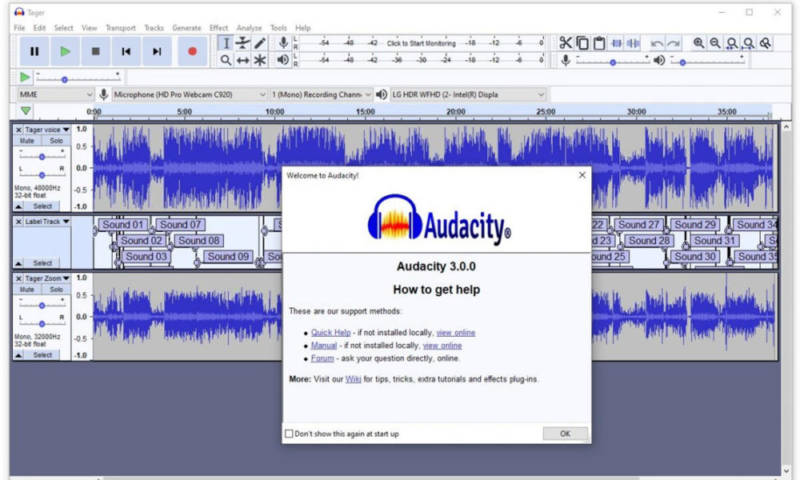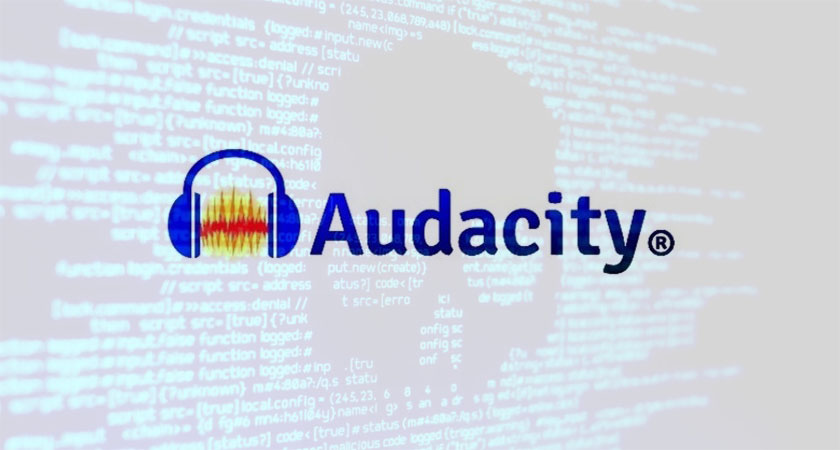

The policy also states that your data can be shared with “any competent law enforcement body, regulatory, government agency, court or other third party where we believe disclosure is necessary”.


However, we are occasionally required to share your personal data with our main office in Russia and our external counsel in the USA.” “All your personal data is stored on our servers in the European Economic Area (EEA).
AUDACITY SPYWARE INSTALL
Follow Mashable SEA on Facebook, Twitter, Instagram, and YouTube.The privacy policy was updated just after the acquisition on 2 July and now shows that, should you install the app, Muse Group have the right to collect info on your OS, CPU and your public IP address. So if you grab Audacity now grab Audacity now, you'll still be able to use it completely anonymously - provided you never update. "The current version (3.0.2) does not support data collection any data of any kind and has no networking features enabled," said Ray. Ray noted that the new privacy policy will only come into effect with version 3.0.3, Audacity's next update, and previous versions will continue not to collect any data. Few people likely thought it would ever start gathering user data, and despite Ray's explanation, many remain convinced it's an unnecessary overreach.įortunately, there's no need to despair if Audacity's reassurances still don't feel particularly comforting to you. Released in 2000, Audacity has been downloaded 100 million times and is the go-to program for anyone starting to dabble in audio editing. These policy changes aren't anything other programs haven't implemented before, but their unexpected addition to open-source stalwart Audacity understandably has users on edge. He further stated that Audacity would not share any information to such agencies upon mere request, and would have to be compelled by a court of law to do so. "We will not collect or provide any information other than data described above with with any government entity or law enforcement agency." "We do not collect any additional data beyond the points listed above for any purpose," said Ray. Users can also manually send data in error reports, but this is optional. Ray also clarified that the only data Audacity collects is users' IP address, which is anonymised and becomes irretrievable after 24 hours, as well as their operating system version and CPU type. or other third party." Mashable has reached out to Muse Group for comment.
AUDACITY SPYWARE FULL
Full stop." However, this seems to directly contradict the privacy policy's initial statement that it may disclose personal data to "a potential buyer" or "any competent law enforcement body. "We will be publishing a revised version shortly."Īccording to Ray, Audacity " not and will not sell ANY data collect or share it with 3rd parties.
AUDACITY SPYWARE SOFTWARE
Muse Group acquired Audacity acquired Audacity in May, and had assured users at the time that the software would remain free and open source. "We believe concerns are due largely to unclear phrasing in the Privacy Policy, which we are now in the process of rectifying," said Muse Group's head of strategy Daniel Ray in a statement on GitHub statement on GitHub. Now Audacity has attempted to clarify its intentions. Users have been vocally expressing their displeasure at these updates, accusing Audacity of being "spyware" "spyware" and speculating that it could monitor their microphones. Data may also be shared with third parties such as law enforcement agencies, advisors, and potential buyers. The new privacy policy also states that Audacity may collect "Data necessary for law enforcement, litigation and authorities’ requests (if any)" - a categorisation vague and large enough to cause users significant concern. All of this came as a rude shock to users, who had been utilising the free audio editing software without giving up data since its launch over two decades ago. Such data includes their operating system and its version, their IP address (thus their country), and their CPU. On July 2, Audacity updated its privacy policy privacy policy to state that it will now collect users' "personal data" for analytics and to improve their software. Popular audio editing program Audacity is trying to clear up recent accusations that it's now "spyware" after recent changes to its privacy policy. Stay updated with the latest in Tech, Science, Culture, Entertainment, and more by following our Telegram channel here.


 0 kommentar(er)
0 kommentar(er)
